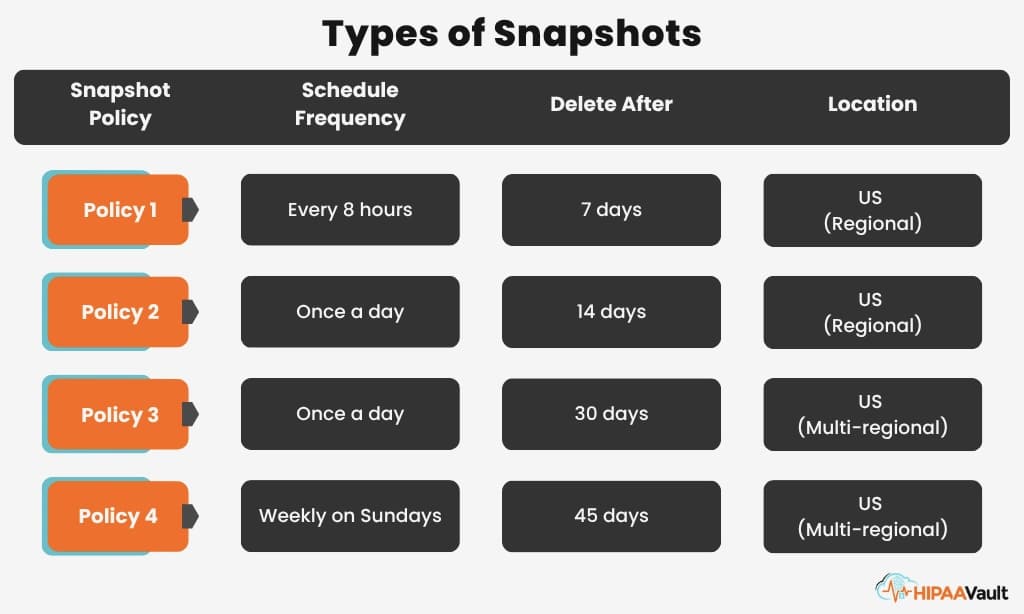In today’s digital economy, data privacy isn’t just a best practice—it’s the law. For any business in healthcare or handling user information, two acronyms cause the most confusion: GDPR and HIPAA.
While both of these complex regulations aim to protect sensitive information, they are not interchangeable. Assuming compliance with one covers you for the other is a costly mistake, one that can lead to multi-million dollar fines, operational disruption, and a severe loss of customer trust.
This article will break down the crucial difference between GDPR and HIPAA. We’ll cover what they protect, who they apply to, and how to determine the exact compliance requirements for your company.
—> The penalties for non-compliance in either framework are severe. Don’t guess about your legal requirements. Schedule a Free 15-Minute Compliance Consultation Today
What is GDPR (General Data Protection Regulation)?
The General Data Protection Regulation (GDPR) is the European Union’s landmark data privacy law that went into effect in 2018. It is widely considered the most comprehensive and stringent data privacy law in the world.
- Who it protects: “Data Subjects,” which means any resident or citizen of the European Union.
- What it protects: “Personal Data.” This is a very broad definition that includes not only names and email addresses but also IP addresses, cookie data, location, and any information that could be used to identify a person. You can read the full legal text of the GDPR on the official EU portal (gdpr-info.eu) to see its full scope.
- Key takeaway: GDPR’s primary focus is on giving individuals full control over all their personal data, mandating how businesses collect, process, and store it.
What is HIPAA (Health Insurance Portability and Accountability Act)?
The Health Insurance Portability and Accountability Act (HIPAA) is a United States federal law enacted in 1996. Its primary goal is to modernize the flow of healthcare information, protect it from fraud and theft, and set standards for patient data privacy.
- Who it protects: Patients within the U.S. healthcare system.
- What it protects: “Protected Health Information” (PHI). This is any identifiable health data, including medical records, billing information, and any data created or received by a healthcare provider.
- Who must comply: “Covered Entities” (like hospitals, insurance providers, and clinics) and their “Business Associates.” As the U.S. Department of Health & Human Services (HHS.gov) explains, this includes IT providers, data centers, or SaaS companies that handle PHI on their behalf.
If your company provides any service to a healthcare entity, you are likely considered a Business Associate and must sign a Business Associate Agreement (BAA).
Learn more about your responsibilities in our guide: What Is a BAA? Understanding the Role of a BAA in HIPAA Compliance
GDPR vs HIPAA: Key Differences at a Glance
The easiest way to see the difference between GDPR and HIPAA is to compare them side-by-side. This table is critical for understanding your legal obligations.
| Feature | GDPR (General Data Protection Regulation) | HIPAA (Health Insurance Portability and Accountability Act) |
| Primary Goal | To protect the data privacy rights of all EU individuals. | To protect the security and privacy of patient health data (PHI) in the US. |
| Who is Protected? | EU “Data Subjects” (any EU resident/citizen). | Patients of US healthcare entities. |
| What Data is Protected? | “Personal Data” (any data that can identify a person, e.g., name, IP, email). | “Protected Health Information” (PHI) (health records, billing info, etc.). |
| Geographic Scope | Global. Applies to any company worldwide that processes EU resident data. | United States only. |
| Key Individual Rights | Right to be forgotten, Right to data portability, Right to object to processing. | Right to access PHI, Right to amend PHI. |
| Penalties | Extremely high: Up to €20 million or 4% of global annual revenue, whichever is higher. | Tiered system: Up to $1.5 million per violation, per year. |
Understanding your role is the first step to compliance. Learn more: What Is a BAA? Understanding the Role of a BAA in HIPAA Compliance
What Legal Considerations Should Companies Be Aware Of? (A Deeper Dive)
The table gives a high-level overview, but the legal details are where businesses get into trouble. Here are the main considerations for any company navigating GDPR and HIPAA compliance.
1. Scope of Data: “Personal Data” is Much Broader than “PHI”
This is the most important distinction. While PHI is a subset of personal data, GDPR protects all personal data. This means that while GDPR and HIPAA both cover a patient’s name and address, GDPR also covers information that HIPAA ignores, such as:
- Marketing data
- Website analytics
- IP addresses
- Cookie identifiers
Your marketing team, not just your product team, must be GDPR-compliant.
2. Geographic Reach: The Biggest Misconception
HIPAA’s scope is simple: it applies to US healthcare data.
GDPR’s scope is global. It doesn’t matter where your company is based. If you are a U.S.-based hospital, a SaaS provider, or a telehealth app that processes the data of even one single person currently in the EU, you must be GDPR-compliant. A US citizen traveling in France who uses your app is protected by GDPR for that interaction.
3. Penalties: Why GDPR Changed the Game
HIPAA fines are serious, with a maximum of $1.5 million per violation category, per year. However, GDPR penalties are in another league. The “4% of global annual revenue” fine transformed data privacy from an IT issue into a boardroom-level financial risk. This potential cost is why global companies take GDPR so seriously.
4. The “Right to be Forgotten”
GDPR grants data subjects the “right to erasure,” allowing them to request that a company delete all their personal data. This creates a direct legal conflict with HIPAA, which requires that patient medical records (PHI) be retained for a minimum of six years. Managing this conflict is a key challenge for global healthcare businesses.
Customize Your HIPAA Bundle—Pick 3 and Save 15%
Don't pay for tools you don't use. Combine Hosting, Email, Fax, or Text into one affordable, managed plan.
Learn MoreCompliance Requirements: What if I Need Both GDPR and HIPAA?
This is the reality for many modern healthcare companies, including telehealth apps, international research hospitals, and cloud service providers. If you (or your clients) handle US patient data and have customers in the EU, you must comply with both.
So, how do you do it? The golden rule is to comply with the stricter regulation for each specific data element.
- Breach Notification: HIPAA allows up to 60 days to notify individuals of a breach. GDPR’s window is much tighter: 72 hours. Therefore, your policy must be 72 hours for all breaches involving EU data.
- Data Retention: A patient’s core medical record must be retained for 6+ years per HIPAA, which generally overrides the GDPR “right to be forgotten” for that specific data. However, their marketing data or website analytics data would need to be deleted upon request.
The key takeaway is this: HIPAA compliance is a great foundation for data security, but it is not a substitute for GDPR.
How to Choose the Right Data Compliance Framework (Your Action Plan)
Feeling overwhelmed? Let’s simplify it. Ask yourself these three questions to determine your next steps.
- Do you handle any health, billing, or insurance data from a US-based healthcare provider, plan, or clearinghouse?
- Yes? -> You must be HIPAA compliant. This is non-negotiable.
- Do you (or your clients) market to, process data from, or have customers who are residents of the EU?
- Yes? -> You must be GDPR compliant.
- Do you do both?
- Yes? -> You must comply with both, using the “stricter rule” principle. This requires a robust, flexible, and secure infrastructure.
It’s complex, but you don’t have to manage it alone. HIPAA Vault’s hosting solutions are specifically designed to satisfy the strict security controls and technical safeguards required by both frameworks. Explore our HIPAA-Compliant Hosting Solutions
HIPAA Penetration Testing—Go Beyond Automated Scans
Validate your security with an objective, third-party audit. We simulate real cyberattacks to uncover vulnerabilities and provide a comprehensive compliance report.
Learn MoreFrequently Asked Questions (FAQ) about GDPR and HIPAA
Beyond the Acronyms: Securing Your Data & Building Trust
At the end of the day, the core difference between GDPR and HIPAA is one of focus: HIPAA is vertical-specific (US healthcare), while GDPR is horizontal and global (all EU personal data).
Failing to comply with either leads to massive fines and reputational damage. But viewing this as just a legal hurdle is a missed opportunity. Proactive, transparent, and robust compliance isn’t a cost—it’s a powerful business advantage that builds trust with your patients and customers.
Don’t risk non-compliance. Our hosting solutions are designed to meet the rigorous standards of both HIPAA and GDPR.








